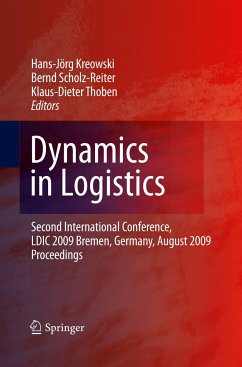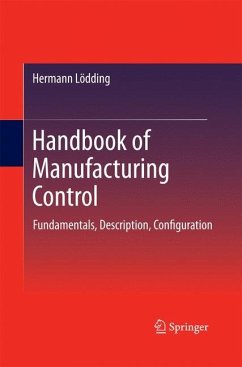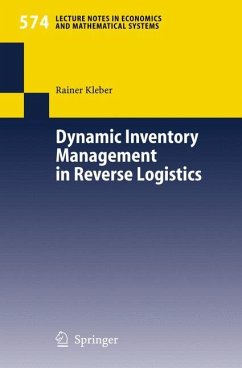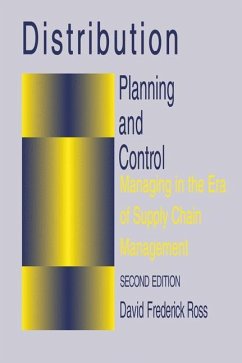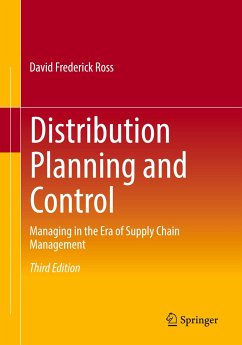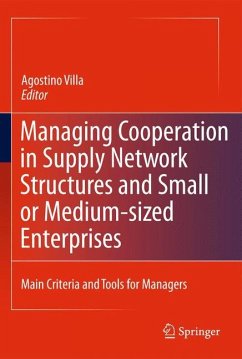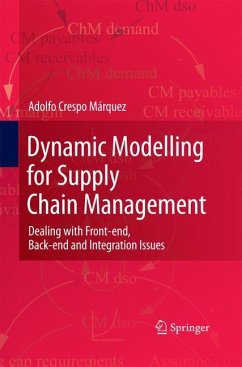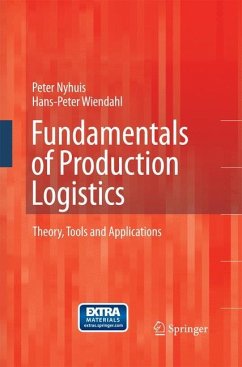
Fundamentals of Production Logistics
Theory, Tools and Applications
Versandkostenfrei!
Versandfertig in 6-10 Tagen
99,99 €
inkl. MwSt.

PAYBACK Punkte
50 °P sammeln!
be copied. Selectively improving performance is thus generally not enough to sustainably fortify a company's position. It generally provides only short-term improved results and instead of leading to a substantial change in competitive relations it at best gains time [Wild-98]. Sustainable advantages are only attainable when a strategic master plan is - veloped based on an analysis of corporate strengths and weaknesses and customer demands. Furthermore, it has to be built on coordinated measures and a comp- hensive examination in order to not only be able to design and implement it, but to als...
be copied. Selectively improving performance is thus generally not enough to sustainably fortify a company's position. It generally provides only short-term improved results and instead of leading to a substantial change in competitive relations it at best gains time [Wild-98]. Sustainable advantages are only attainable when a strategic master plan is - veloped based on an analysis of corporate strengths and weaknesses and customer demands. Furthermore, it has to be built on coordinated measures and a comp- hensive examination in order to not only be able to design and implement it, but to also be able to control it with regards to the desired success. In addition to high quality standards and the price of products, the logistic f- tors delivery time and delivery reliability take on progressively more importance as possibilities with which a company can distinguish itself within the market (Fig. 1. 1) ([Voig-90], [Kear-92], [Baum-93], [Gott-95]). Production, as the p- mary function for fulfilling orders, is thus increasingly called upon to improve effectiveness [Zahn-94]. The goal therefore, is to organize the entire material flow in the supply chain, from procuring raw materials and preliminary products, through the entire production process including all of the interim storage stages, up to supplying distributors or as the case may be, external customers in such a way that the firm can react to the market in the shortest time span.





